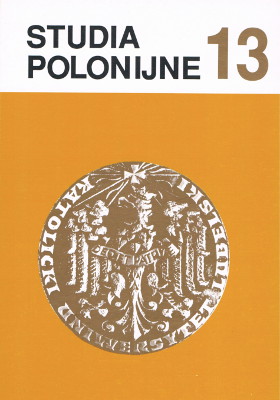Identity Processes of the Selected Group of the post-World War II Polish Generation in the United States (Persons born between 1945-1959) Studium grupy pokoleniowej w wieku 28-42 lat, w której przynajmniej jedno z rodziców urodziło się w Polsce
Main Article Content
Abstract
This is a study of the first generation of Polish-Americans born between 1945 and 1959 who have at least one parent born in Poland. The study focuses on the values of this selected group of 160 persons who responded to a mailed questionnaire. The research centers around four leading questions:
- What are the demographic characteristics of the group under study?
2. What values did they inherit from their parents?
3. What values did they adopt in America?
4. What is their national identity?
The most striking finding is the educational level of the respondents. Nearly 80% of them have higher education. The second highest frequency among the values inherited is the value of work. It carries an adjective: hard. This value of work also occupies the second place among the values adopted in America. It is mentioned together with the noun: ethic. It is not difficult to notice the difference between one-directional HARD WORK and two-directional WORK ETHIC which implies expectation of work well performed but also appreciated and well paid.
Family, religion and tradition are high on the frequency list of the values inherited. High up on the frequency list of the values acquired in America there is value of achievement. Also frequently mentioned is the value of responsability, and competetiveness. Expressed as "wishes" there are values of work satisfaction, recogition, financial freedom and free time. Spiritual values are highly rated. The attitude of the respondents toward the future tends to by optimistic.
Family, religion and tradition are high on the frequency list. This trio is joined by the values of Polish language, literature, and history; by the value of respect for older persons and that of hospitality. In America the respondents learned the values of open mindedness, self-sufficiency, self-respect and the value of achievement.
The figures obtained from the study of the sample may indicate a changing trend in the value of identity. The new immigrant seems to be attracted to the Polish-American identity. The researcher observed (over the past 18 years) the steady growth of the Polish-American identity among the waves of immigrants she did study from 1970. In the present study 44% of the respondents identified themselves as Polish-Americans.

